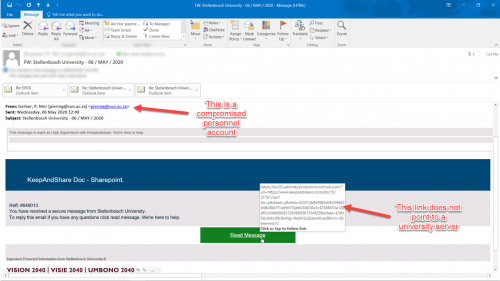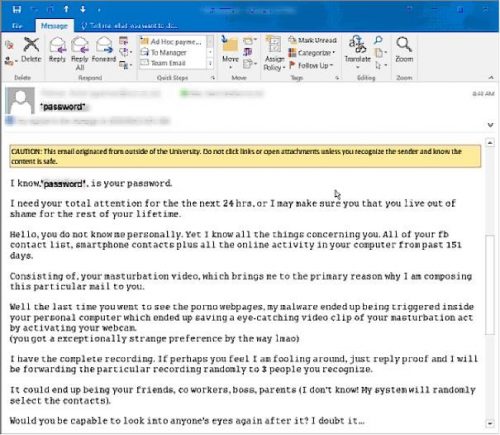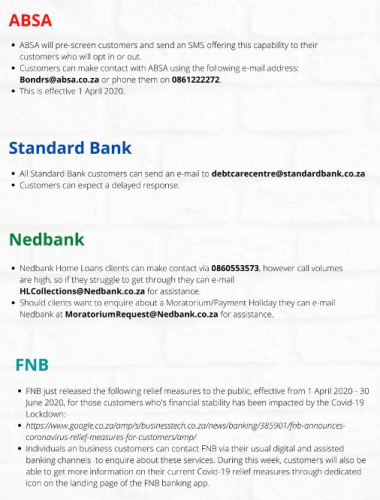[:en]
The nature of cyber-attacks is always evolving and Information Technology, with the help of staff and students, has to do everything within our power to try and prevent them.
In an attempt to tighten cyber security on campus, we will soon provide a new warning which can identify the origin of an email. By establishing the origin of email, it’s easier to protect against cyber security risks such as malware, spoofing and phishing.
From now on, every time you receive email from outside campus a yellow banner will be displayed at the top of your email:

Click for a larger version
When staff or students receive a potentially dangerous email which seems to have been sent from a colleague with a sun.ac.za address, they will immediately be able to see that it is, in fact, not from their colleague, but from an address outside the university.
Just keep in mind that the banner does not indicate that the email is necessarily a security risk, but that the possibility exists and that you need to be extra careful when responding to it.
We will continuously assess the effectiveness of this decision and reconsider if necessary. For any additional enquiries, please send an email to help@sun.ac.za.
[:af]
Die aard van kuberaanvalle verander voortdurend en gevolglik moet Informasietegnologie, met die hulp van personeel en studente, alles in ons vermoë doen om dit te probeer bekamp.
In ’n poging om kubersekuriteit op te skerp op kampus, sal ons dus binnekort ’n nuwe waarskuwing verskaf wat die oorsprong van e-posse identifiseer. Deur die oorsprong te identifiseer is dit makliker om personeel en studente te beskerm teen kuberrisiko’s soos malware, spoofing en phishing.
Voortaan sal daar elke keer as jy ’n e-pos van buite kampus ontvang ’n geel banier bo-aan jou e-pos verskyn wat soos volg lyk:

Kliek vir `n groter weergawe
Indien personeel of studente dus ’n potensieel gevaarlike e-pos ontvang wat lyk asof dit vanaf ’n kollega met ’n sun.ac.za adres gestuur word, sal die leser dadelik kan sien dat dit in werklikheid van buite die universiteit gestuur is, en dus verdag is.
Let daarop dat die banier nie noodwendig beteken dat die e-pos `n gevaarlik is nie, maar bloot dat die moontlikheid bestaan en dat jy, as ontvanger van die e-pos, ekstra versigtig moet wees.
Ons sal die effektiwiteit van hierdie stap deurlopend evalueer en heroorweeg soos nodig. Vir enige verdere navrae, stuur asb. `n e-pos aan help@sun.ac.za.
[:]




